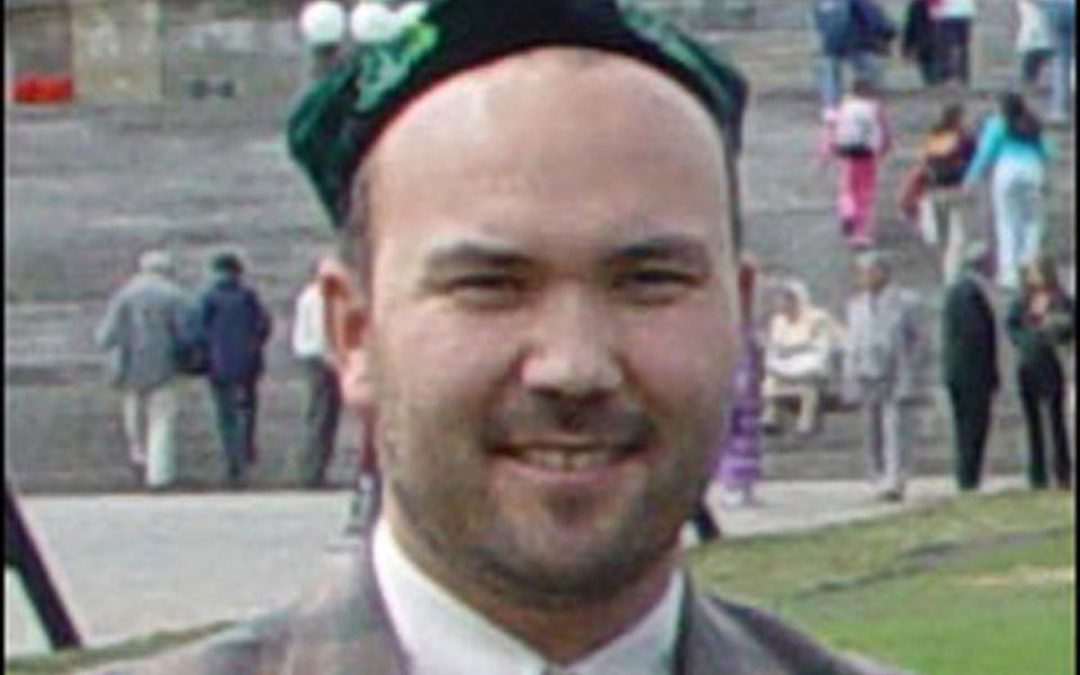The Canadian advocate for the human rights of Uyghurs has been imprisoned for 16 years, in blatant disregard of China’s own laws. No one has been able to speak with him; he hasn’t even had a consular visit.
“I have not heard my husband’s voice in 16 years,” declared Kamila Talendibaeva. “I don’t even know whether he is still alive.” Kamila’s youngest of four children is about to turn 15, and is aware of the release this past year of other Canadians unjustly detained in China. But he still awaits freedom for his father, Huseyin Celil, who has been left behind in a Chinese prison camp.
In 2006, Celil, a Canadian citizen of Uyghur descent, was forcibly “disappeared” at the hands of the Chinese government. No one, not even his family, knows the status of his health or his whereabouts. And this is just one story among millions of lives shattered by the systematic destruction of the Uyghur people — a genocide — in Xinjiang region.
Recently, marking the 16-year anniversary of Celil’s disappearance, former Canadian ambassadors and ministers of Justice and Foreign Affairs joined the Raoul Wallenberg Centre for Human Rights and Wallenberg Advocacy Group at McGill Law in sending an open letter to the Chinese government, demanding Celil’s immediate release and other assurances.
Celil’s story begins in Kashgar, China’s Uyghur region. As a young man, he spoke up for the rights of his community, but, fearing persecution, he fled China in 2001.
After years of precarity, he found a sense of belonging and safety in Canada. Celil acquired Canadian citizenship in 2005, officially renouncing his Chinese citizenship. He settled with Kamila and their sons in Burlington, Ont. There, he continued advocating for Uyghur rights by educating fellow Canadians about his culture, religion and oppression.
In the spring of 2006, Celil travelled to Uzbekistan to visit his wife’s family. He never came back. On March 27, 2006, Uzbek authorities arrested Celil on the Chinese government’s instructions.
He was brought to China, where the Chinese government subjected Celil to a sham trial, blatantly violating his fundamental freedoms and the very due process rights guaranteed in the Chinese constitution and procedural law. Chinese officials barred Celil from communicating with family or Canadian officials. They forbade him from speaking to his defence counsel and from presenting evidence. They convicted him on trumped-up “terrorism” and “splittism” charges, and sentenced him to death, later commuted to a life sentence. About a decade later, Celil’s sentence was reportedly changed again to 20 years, restarting then.
Yet, while 16 years have gone by since his imprisonment, the Canadian government has failed to establish a single consular visit or inquiry into his circumstances.
Prime Minister Justin Trudeau situated the return of the two Michaels (Kovrig and Spavor) within Canada’s commitment to defending Canadians abroad. Honouring this commitment requires immediate action for Celil.
Canada must therefore appoint a Special Envoy tasked with ensuring Celil’s return — or more broadly with the return of Canadians unjustly detained abroad. Demands for this appointment are mounting across Canada, echoing the 2020 recommendation by the House of Commons’ Standing Committee on Foreign Affairs and Subcommittee on Human Rights.
Canada must further impose “Magnitsky sanctions” on Chinese officials responsible for arbitrarily detaining Celil and for mass atrocities against all Uyghurs in the region. These sanctions target foreign nationals responsible for gross human rights violations, through asset bans and travel restrictions. Canada is a Magnitsky legislation pioneer and has already shown its willingness to exercise its sanctioning powers on the world stage — for instance readily imposing them on Russian officials and oligarchs. Canada cannot afford to stay silent in naming and shaming those who orchestrated Celil’s disappearance.
Trudeau recently expressed his solidarity with Raïf Badawi’s family and advocates who have been working for nearly a decade to see him released in Saudi Arabia. For 16 years, Celil’s loved ones have endured a similar struggle. Both families exemplify Canada’s commitment to human rights, but they cannot uphold this commitment alone.
As leading figures from each major federal political party unite with us in a commitment to Celil’s case and cause, Canada must use all the tools at its disposal to secure his release.
Aliya Behar and Nicolas Kamran are senior advocates at the Wallenberg Advocacy Group at McGill University’s Faculty of Law, affiliated with the Raoul Wallenberg Centre for Human Rights.


Recent Comments